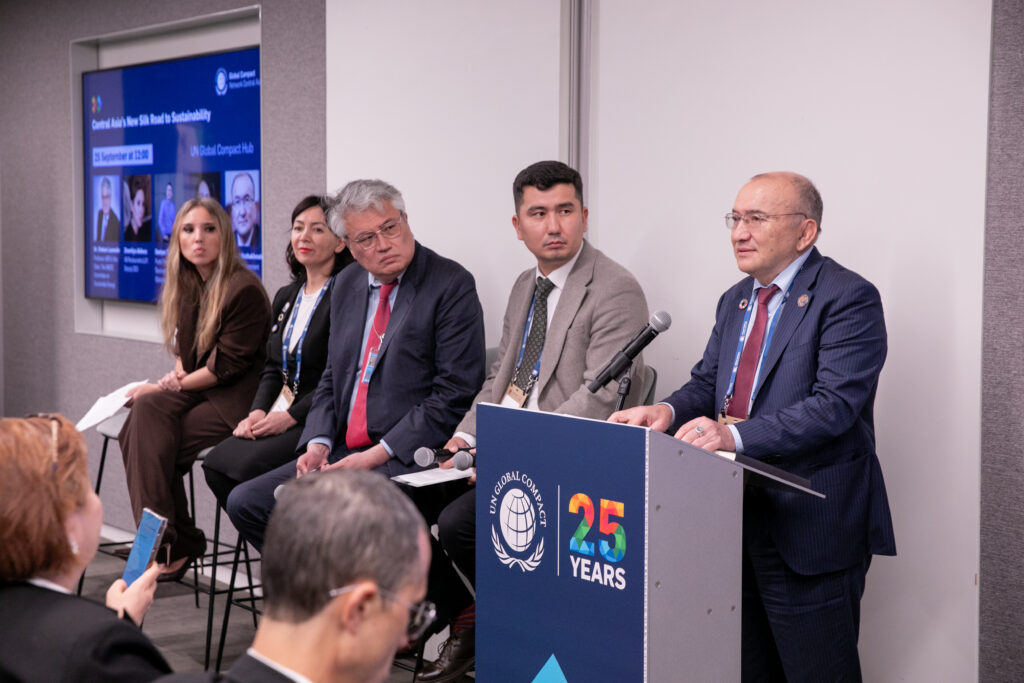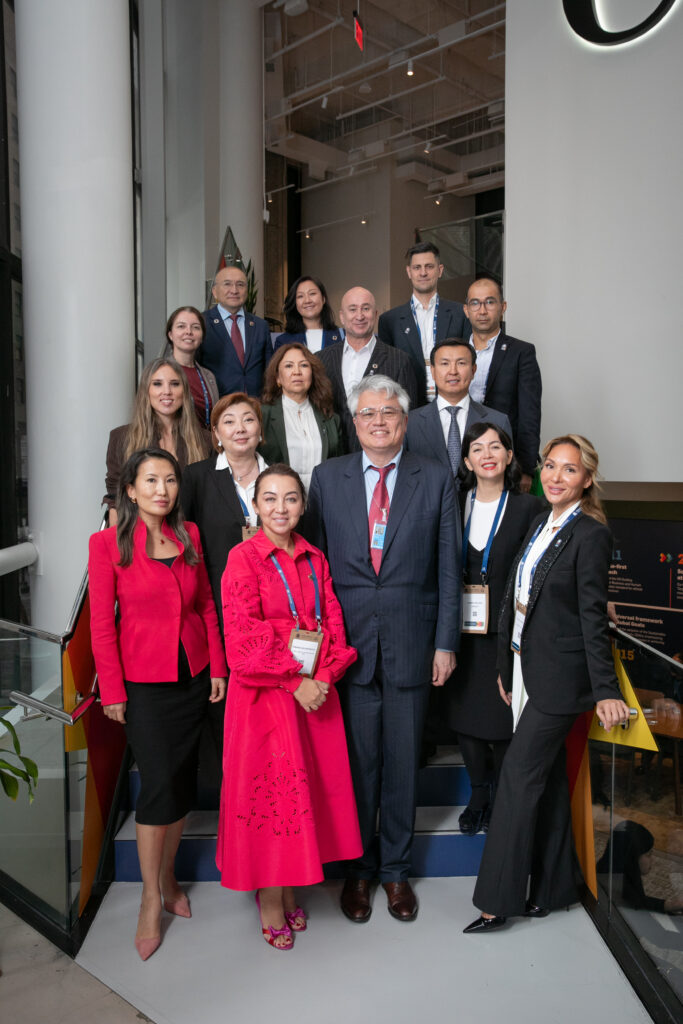
On October 24, 2025, the global community celebrated an important milestone in the history of international relations – the 80th anniversary of the founding of the United Nations. The UN system includes more than 30 organizations, programs, and funds, as well as six principal organs established under the UN Charter.
As a socially responsible university in the field of business and management, Almaty Management University (AlmaU) is an active participant in two major UN initiatives: the UN Global Compact and the UN Principles for Responsible Management Education (PRME). In its mission, AlmaU commits to making the world a better place through education, research, and entrepreneurship.
Since 2021, the university has been actively promoting the sustainable development agenda in education and became the initiator of the UN PRME Eurasian Chapter (Principles for Responsible Management Education) initiative, which forms part of the UN Global Compact ecosystem.
On March 24, 2025, AlmaU became a member of the UN Global Compact in Kazakhstan. Joining the UN Global Compact opened new opportunities for AlmaU in the areas of international cooperation, dialogue with the business community, and the implementation of joint initiatives and educational programs focused on sustainability.
Following its accession to the UN Global Compact, AlmaU President Assylbek Kozhakhmetov was invited as a speaker to the UN Global Compact Hub Business Week, which took place during the UN General Assembly Week on September 22–26, 2025, in New York.
During the panel session “Central Asia: The New Silk Road to Sustainability”, business leaders from Central Asia appeared for the first time as a unified regional voice at the UNGA platform, presenting the region’s growing potential for investment, innovation, and sustainable development.
The discussion highlighted Central Asia’s role as a strategic bridge between East and West, building on the legacy of the Silk Road to advance the UN Sustainable Development Goals (SDGs). Representatives from Kazakhstan, Kyrgyzstan, Tajikistan, Turkmenistan, and Uzbekistan presented specific initiatives in green finance, renewable energy, sustainable infrastructure, and inclusive trade. Participants spoke about regional investment opportunities, cross-border collaboration, and innovative public-private partnership mechanisms that drive sustainable growth.
President Assylbek Kozhakhmetov spoke at the session “Central Asia’s New Silk Road to Sustainability.” During the discussion, speakers explored how Central Asia can leverage investment, education, and entrepreneurship to achieve sustainable development and long-term competitiveness. With the rising demand for skilled talent, innovative financial tools, and sustainable business ecosystems, they discussed ways to strengthen the knowledge economy in the region and promote inclusive growth. The participants emphasized the role of education in preparing future leaders, as well as the potential of entrepreneurial ecosystems to accelerate innovation and sustainability.
“In the era of artificial intelligence, human capital will remain essential, but we must rethink what kind of human development truly matters. As routine tasks and even complex decisions become automated, what will remain irreplaceable is deep human subjectivity – the ability to take responsibility, act with moral clarity, and create meaning in uncertainty.
This is why at Almaty Management University, we focus on the concept of Tolyq Adam (‘the holistic person’). Rooted in Kazakh cultural tradition, it emphasizes not only the training of qualified professionals but also the cultivation of individuals with strong moral character, integrity, emotional depth, and social responsibility.
The future competitiveness of Kazakhstan and Central Asia depends on this holistic development of the human being: in a world saturated with AI, what will matter most is not what we know, but who we are.
Modern education must be learner-centered, practice-oriented, and responsive to the challenges of the 21st century – climate change, social inequality, and technological transformation. We must prepare not just professionals for today’s jobs, but leaders capable of shaping a sustainable and just future.
AlmaU integrates sustainability into all disciplines, develops programs with real social impact, and engages students in solving urban and regional challenges through partnerships with business, government, and communities. Yet, systemic change in Central Asia requires a transformation of mindsets and educational models – more autonomy for universities, flexible learning formats (micro-credentials, hybrid programs), and stronger collaboration between government, business, and academia. Education must become anticipatory, not reactive.
Central Asia is not the periphery of the world – historically, it has been a bridge between East and West, tradition and innovation, natural wealth and human talent. To realize this potential today, we must boldly invest in the next generation – not only through infrastructure and finance but through culture, imagination, and collective creativity.
Our vision must go beyond ‘catch-up’ development: the region can achieve a qualitative leap by forming its own models of sustainable growth and leadership. Education, entrepreneurship, and regional cooperation are the three key pillars that will help Central Asia become an active contributor to the global future.” – Assylbek Kozhakhmetov

Since 2009, AlmaU has been a signatory to the Principles for Responsible Management Education (PRME) initiative. This global movement unites over 800 higher education institutions in business and management from more than 90 countries, fostering leadership skills that balance economic objectives with sustainable development goals.
AlmaU actively implements the six PRME principles, integrating the values of sustainable development into its academic and research activities. From 2020 to 2023, President and Founder of AlmaU, Assylbek Kozhakhmetov, served as a member of the PRME Advisory Board.
In 2021, AlmaU became one of the founding universities of the UN PRME Chapter Eurasia, established to engage Eurasian universities in the global PRME network. The initiative aims to integrate responsible management education principles and enhance cooperation among signatories.
On March 24, 2025, AlmaU joined the UN Global Compact in Kazakhstan, which unites more than 25,000 corporate participants across over 160 countries, making it the world’s largest corporate sustainability initiative.